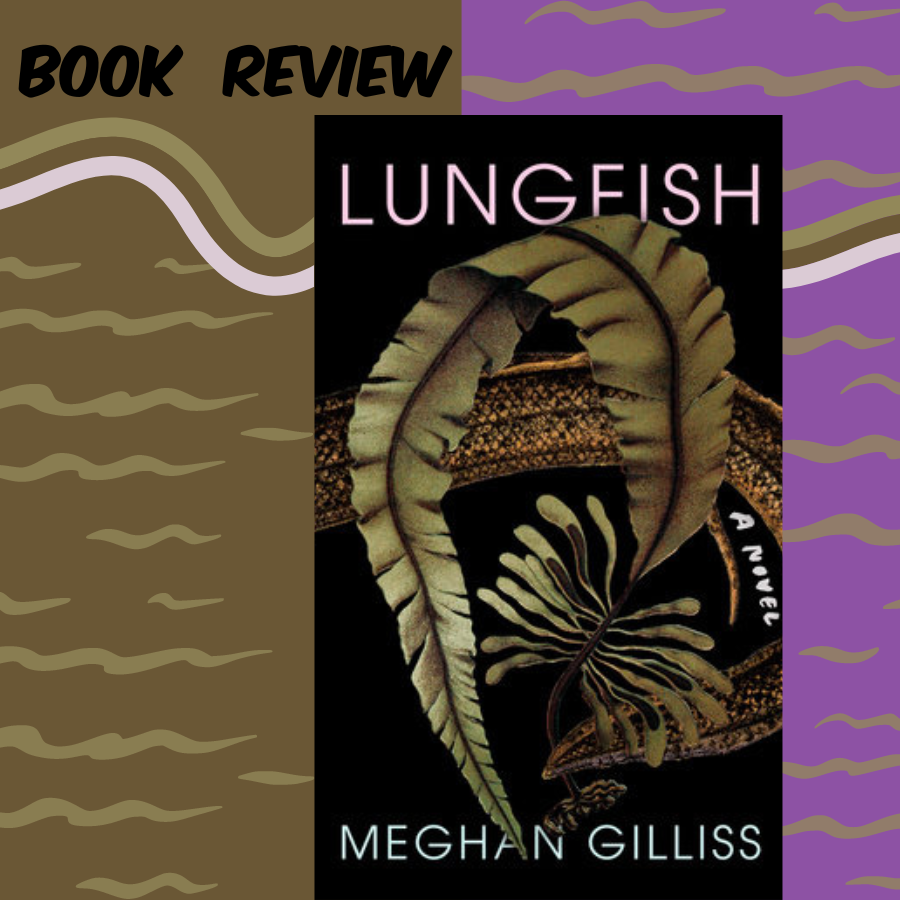Meghan Gilliss’s debut novel, Lungfish, left me reeling. Experimental in form and told in flashbacks and fragments with vivid descriptions that verge on poems, Lungfish is disjointed and sometimes chaotic, like the tumultuous and precarious life of its protagonist, Tuck. Its language, like its landscape, is lush and vibrant with a razor-sharp edge. While it is often biting, it is a book that has a lot to say about love and its pitfalls, from the tender to the tragic.
Tuck is a young mother who has found herself squatting with her family in her recently deceased grandmother’s home on an otherwise desolate island off the coast of Maine. As she searches the crevices of the house where she spent her childhood summers for the source of a strange, primal scent, she comes to realize that she and her family have been driven into poverty as a result of her husband Paul’s dependence on Kratom, an opioid-like substance that can be purchased online or in gas stations.
This is not where Tuck imagined life would lead her. Slowly and painfully, the events that brought her here and her denial of them come into focus. Tuck has been out at sea for a long time; it has just taken her a while to realize it.
But her survival instinct and her deep, fierce love for her daughter, Agnes, help her turn to the island for sustenance. She makes jelly from Irish Moss and rose hips. She boils mussels and collects crabs and bladderwrack. The ornate descriptions, the lists of almost fantastical sea creatures and Gilliss’s lilting prose, have a way of soothing the reader, much as Tuck soothes Agnes and eases their shared hunger. For a few brief moments, their island can seem like a wonderland.
This is a beautifully written book, but not an easy one. Again and again, we are reminded that their world is a dark one. A cold winter looms, as does the executor’s grip on the house. And even as Paul attempts to stay clean, Tuck’s anger and her fear of his relapsing reverberate through everything.
Like watching a friend make predictable and bad decisions, it is painful to see Tuck locked in an unrelenting cycle of denial of Paul’s addiction and her attempts to alternatively ignore and control it. It is even more painful to watch her see her daughter suffer the consequences of their actions. If you know how to look for it, Tuck’s frustrating behavior mimics every textbook symptom of codependency.
Even her love for Agnes is, at times, unsettlingly all-consuming. It is like she is surviving on that alone. In her denial and her self-abnegation, Tuck is like the lungfish she reads about in her grandmother’s books — in stasis, dormant, subsisting without food. And she has dragged her daughter down with her.
But for all of her flaws, Gilliss leaves space for Tuck to transcend them. She is not just codependent. She is a deeply sympathetic character, one it is easy to root for and difficult to watch struggle.
“Lungfish survive droughts by coating themselves in mud and sinking deep into sleep, into estivation,” Tuck quotes, “the mud hardening and cracking in the sun until the water finally returns and sets everything loose again, brings movement back to earth, and fish.”
I intensely wanted the tide to come and help wrench her from the mud. But this is a book about Tuck’s need to pull herself free and to find a way to love that is not self-annihilating. Lyrical and raw and full of resonance, Lungfish is a breathtaking book, sometimes by virtue of its beautiful prose and other times because of its brutality.


